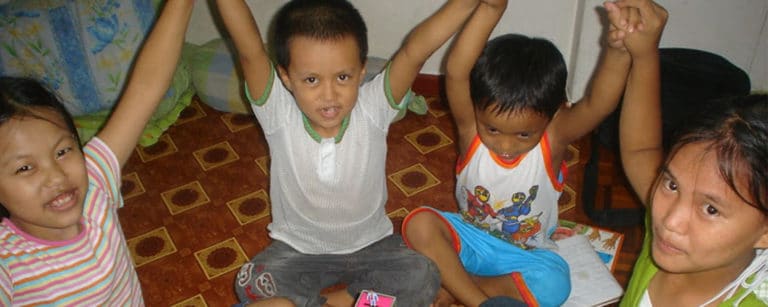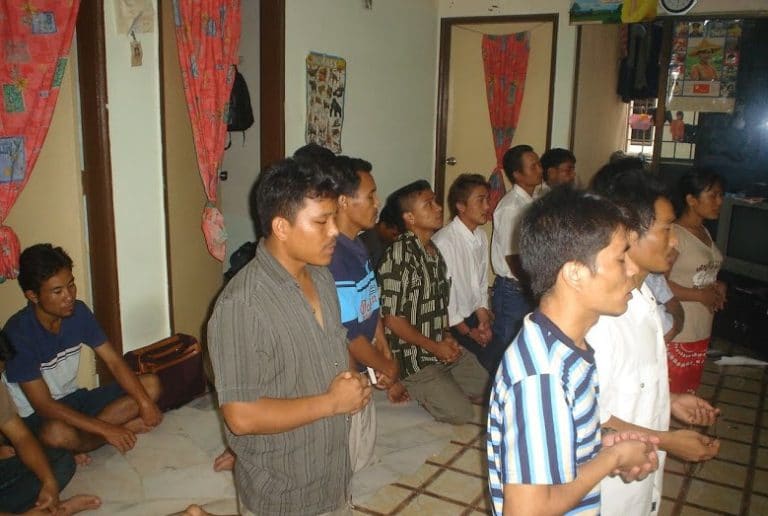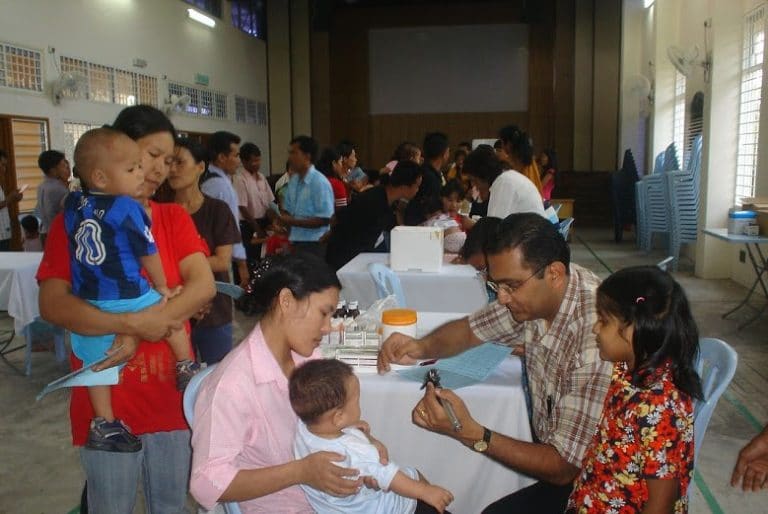
BY ELIZABETH WONG BARNSTEAD, THE WESTERN KENTUCKY CATHOLIC
When he was growing up in Myanmar, Lam Naing’s mother always told him, “My son: pray, pray, pray.”
Lam Naing, who with his wife and three children belong to Holy Spirit Parish in Bowling Green, said he would joke about his mother’s insistence on constant prayer.
But she would tell him, “My son, without prayer, you’re not going to survive.”
Lam Naing finally understood her words many years later when he was forced to escape out of Myanmar, after the country’s government turmoil – and his standing up for education rights – caused him to fear for his life.
“The hardship that I had come through made me pray hard,” said Lam Naing in a Nov. 7 interview with The Western Kentucky Catholic. “Through this, God showed me he is with me, he loves me and he cares about me.”
Trouble
Lam Naing’s troubles began when he sought to improve the education of youth in his hometown of Mindat – “situated on the hill among the pine trees” – in the southern Chin State of Myanmar, also known as Burma.
“I used to try to educate and encourage the young people to open their eyes to see the truth and do their best for their future,” said Lam Naing, who received his teaching degree from a university in Yangon. “I had to speak out on the truth of educational issues, basic human rights, religious freedom and discrimination.”
Unfortunately, the authorities said he was politicizing and breaking laws.
Lam Naing knew others like him had been falsely accused and “jailed for life” after getting on the wrong side of the authorities.
To make matters worse, Lam Naing is Catholic.
Christianity, with a small percentage being Catholicism, is a minority religion in Myanmar. It is closely watched by authorities “because they know that the Church promotes not only the spiritual life but peoples’ living conditions and education,” said Lam Naing.
Lam Naing, who with his wife was raising two small children at the time, did not initially plan to leave the country.
But within a few months he realized the authorities were trying to find any way to put him in jail.
“Finally, all my relatives and my friends told me, ‘You’re going to need to run away from here,’” he said.

Harrowing journey
Lam Naing made the desperate decision to use the services of human smugglers to escape into Malaysia.
“We ran at night, in the jungle – you can’t see anything,” he said. “The (human smuggler) had torchlight, a small light, and just like the Three Kings following the star… I could see the torchlight, and I had to follow it.”
Upon arriving in Malaysia, Lam Naing had suffered bruises, abrasions and fatigue from the journey. He connected with some fellow Burmese, who took care of his injuries.
Finding work was difficult. Lam Naing told the WKC that the Malaysian government categorizes refugees as illegal immigrants.
He said if a refugee did find a job, they risked being paid inconsistently and abuse from the business owners. If a refugee worker complained, “they call the police – you’re arrested – you’re in jail,” he said.
‘Please, God’
After several months, Lam Naing found work and sent money home to his wife via a friend who served as a middleman.
“I never contacted them directly,” he said of his family. “That was a hard time, the hardest time for me. And I missed my kids a lot.”
After a year, he connected with the same human smugglers and worked out a way to bring his family to Malaysia – “without harm.”
His wife and two children journeyed so far, but were arrested and jailed while passing through Thailand. Upon hearing the news, Lam Naing had little hope that his family would be treated well, considering the jail’s unsanitary, rough conditions.
He prayed, “Please, God, let all of the police taking care of the jail feed my family and take care of my family.”
Miraculously, his family was released and eventually made it to Malaysia, where he was reunited with them.
“How God works – it is amazing,” he said. He also learned that although his wife and one of the children had gotten sick, the jail had taken care of them and provided them with food.
“God blessed me so much,” said Lam Naing. “It was a great blessing to be united with my family.”

‘Are we Catholic?’
Back together in Malaysia, Lam Naing worked hard at achieving official refugee status for himself and his family – which would mean the opportunity to resettle in a safer country. This complex process can take years, which proved true for his situation.
Despite his personal hardships, Lam Naing wanted to help his fellow refugees who lacked basic healthcare, education for their children, and mental health resources – among many other things.
“The churches in Malaysia were afraid of getting involved with refugees because of the Malaysian government’s pressure,” he told the WKC.
So he and a fellow refugee started a refugee-assisting community services center.
Lam Naing approached the local Catholic churches to see if they would participate: “But they did not welcome me because of the government situation.”
“At first I was very angry with them,” he said. “Who went and died on the cross? Are we Catholic?”
But he understood the churches’ difficult position.
One day a refugee was hit by a motorcycle. Lam Naing begged the local St. Vincent de Paul Society to go visit the man in the hospital. Eventually, they did.
“That’s how God works,” said Lam Naing.
Over time, other local church ministries began to help, too. The community services center grew to provide children’s education, adult mother’s education, healthcare through the Catholic Doctors Association of Malaysia, and spiritual support in weekly prayer groups.
Building trust
After many years of limbo in Malaysia, Lam Naing and his family received refugee status and were resettled in Bowling Green, Ky., in May 2013.
Their transition to the United States was assisted by the International Center of Kentucky, located in Bowling Green, as well as a number of new friends and fellow Catholics who welcomed them to the area. The family joined Holy Spirit Parish, and a third child was later born to them.
“We find that Bowling Green is a very peaceful and beautiful place and we love it,” said Lam Naing.
Lam Naing explained that in the Church’s eyes, a refugee is no different from anyone else.
His experience with discrimination against migrants in Malaysia gives him strength when facing discrimination in the U.S.
“There is a lot of misunderstanding because we don’t know each other,” he said. “If we can build trust, the community will get a lot of good benefits. Trust will bring kindness and understanding.”
Lam Naing said that “outsiders” should be viewed through the lens of the Catholic faith.
If people do this, “you will feel God’s blessing,” he said. “They’re my brothers! They’re my family!”
Originally printed in the January 2018 issue of The Western Kentucky Catholic.
Copyright © 2018 Diocese of Owensboro/The Western Kentucky Catholic
